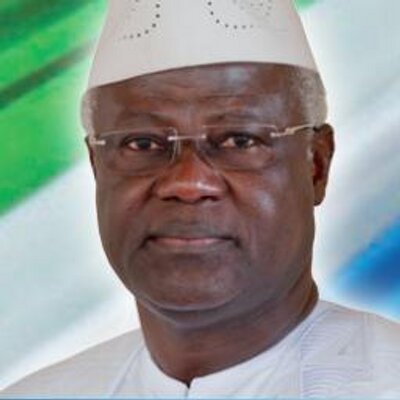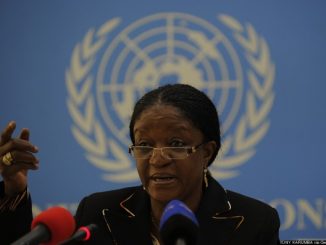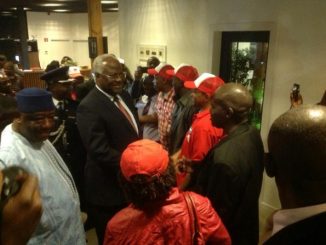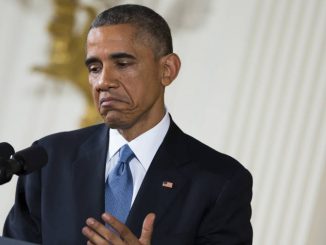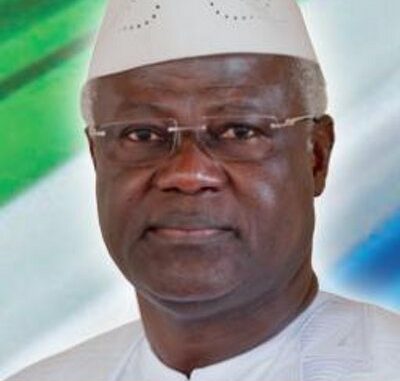
By June 2006, the then World Bank head in Sierra Leone, James Saki, on the issue of Sierra Leone receiving no more loans from his institution, had said, “it makes no sense to give loans if World Bank finds debt is not sustainable,” further referring to the country at the time as being “in the thresholds, not too good, not too bad.” Just months to the 2007 presidential and parliamentary elections, Sierra Leone’s donor community had chosen to close their doors on the West African state by withholding support. This was against the backdrop that the country had enjoyed huge donor support towards her post war reconstruction and peace building efforts.
Sierra Leone, by the year 2000 had literally legitimized corruption; a former Marine Resources Minister got accused of embezzling government funds and was forced to resign but never charged to court; an agriculture minister in March 2001 was convicted of embezzling funds from World Bank development funds. The anti-graft commission became a political weapon, used to chase perceived opponents even from within the system- Momoh Pujeh a case in point.
In 2001, publisher of an independent Freetown tabloid, For di People, accused then Justice Minister of accepting bribes in exchange for the release of an Israeli and a Russian held in Sierra Leone, pending extradition to Colombia on drug charges. No action was taken. In fact as a reprisal measures, on Nov. 2nd, 2001, the ACC began investigating then For di People editor for tax evasion.
Though there might have been other reasons for such action (withholding support) by the country’s donor partners, it was also not, therefore a surprise, that given the level of state graft, they could no longer trust the country’s leadership with their taxpayers’ monies. Indeed, then president Kabba had ensured the creation of the ACC, sadly, the political will to tackle corruption was lacking.
Recent reports, that the World Bank was to double its support to Sierra Leone in the coming three years speak highly of the efforts we have made over the years in restoring donor/international confidence. It also is a manifestation of the extent to which the current administration has gone in not just working in tandem with donor expectations, but in meeting the very commitment upon which it was elected close to a decade ago. As a country, we are cognizant of the fact that, donor support/funding alone cannot develop a country. But what is also crucial is that any support that comes into a country from development partners should be used judiciously. It is also encouraging that this administration has over the years enabled the NRA to continue to mobilize resources that have complemented whatever support we are getting from our development partners.
Close to a decade, president Koroma has successfully transformed the country in a range of sectors. The nation’s infrastructure sector has seen a leap, with huge financial resources poured into it. Infrastructure is crucial to nation building and this, we have not ignored as a country. Just last week, the president commissioned the construction of two ultra modern hospitals in the Western Area which “is a continuation of government’s commitment to strengthening the health sector under the health sector reform project.” In fact, these efforts are all aimed at achieving or maintaining a resilient health sector. Just seven years ago, this administration launched the Free Health Care Initiative for pregnant women, lactating mothers and children under five which, reports state, has seen an increase in the utilization of health services. It has also led to an improved health care access for women and children.
In essence, there are outstanding success stories we have got in the last nine years of governance as a country. We have successfully stepped up the fight against corruption, formulated policies that are paramount and vital to ensuring economic growth. The country has been encouraged to raise production, productivity, and competitiveness in the agriculture sector since this is one sector that touches the lives of so many. We also pursued, as a poverty reduction strategy, the Smallholder Commercialization Scheme. This was within the framework of the National Sustainable Agricultural Development Programme and the Comprehensive African Agricultural Development Programme.
Our human right records stand on a positive platform, with our human right commission performing exemplary. Today, governance institutions in the country are fully functional. Our global image remains crucial, spearheading the Common African Position in the UN. We have been contributors to regional peace, with our armed forces playing a strategic role in peace building and keeping in a number of countries.
With these and other achievements under this administration, though as would be expected as in any developing country, with huge challenges, it becomes worrying, if not disingenuous for a certain few to be sniveling, bemoaning the state of affairs and attempting to present us as a zero growing nation. But again with a populace that trusts its leaders and government structures, the best is to remain focused and move along with public expectations.
By John Baimba Sesay

